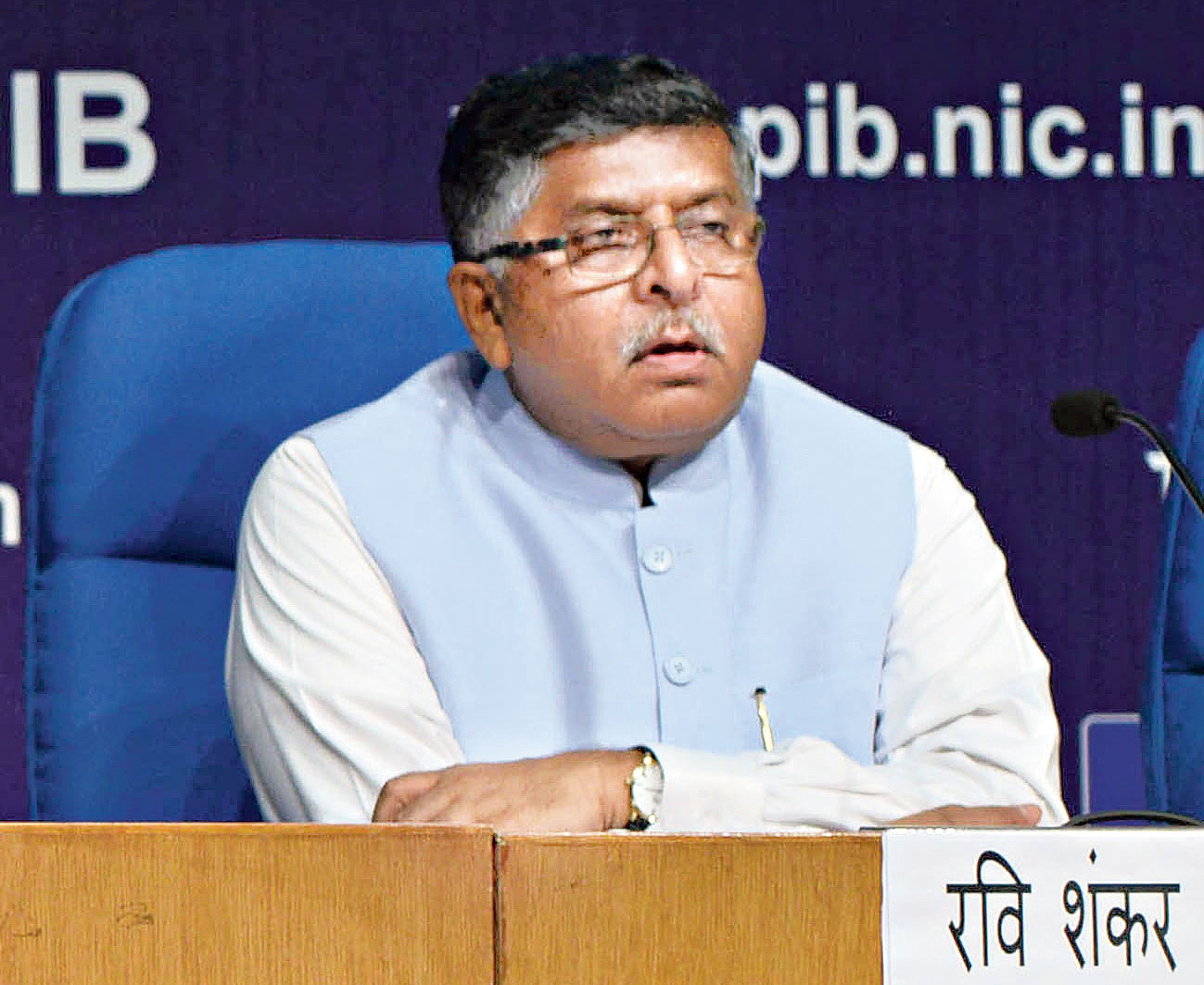The Aadhaar programme has since its inception in 2009 suffered from “constitutional infirmities and violations of fundamental rights”, according to the sole dissenting judge in the 4:1 majority verdict that upheld the scheme’s constitutionality while curbing its scope.
Justice D.Y. Chandrachud’s minority opinion, which struck down the 2016 Aadhaar Act as unconstitutional, is not binding on the government but has a more persuasive value for academic discussions.
“Constitutional guarantees cannot be subject to the vicissitudes of technology,” the judge said, disagreeing with the majority view that Aadhaar can be insisted on for extending subsidy benefits.
“Denial of benefits arising out of any social security scheme which promotes socio-economic rights of citizens is violative of human dignity and impermissible under our constitutional scheme.”

An independent and autonomous authority is needed to monitor the compliance of the provisions of any statute which infringes the privacy of an individual.
Justice D.Y. Chandrachud
Justice Chandrachud dismissed the requirement for linking bank accounts with Aadhaar, saying it amounted to accusing an entire population of siphoning off money.
“It needs no reiteration that an entire population cannot be presumed to be siphoning huge sums of money in welfare schemes or viewed through the lens of criminality and, therefore, considered as having a diminished expectation of privacy,” he said.
“On the contrary, by collecting identity information, the Aadhaar programme treats every citizen as a potential criminal without even requiring the State to draw a reasonable belief that a citizen might be perpetrating a crime or an identity fraud.
“When the State is not required to have a reasonable belief and judicial determination to this effect, a programme like Aadhaar, which infringes on the justifiable expectations of privacy of citizens flowing from the Constitution, is completely disproportionate to the objective sought to be achieved by the State.”
The judge said that under the Aadhaar architecture, the Unique Identification Authority of India is the only authority that carries out all the functions: administrative, adjudicatory, investigative, monitoring of the project.
Yet, the act does not place any institutional accountability on the authority to protect the database of citizens’ personal information. The act is silent on the liability of the authority and its personnel in case of non-compliance with its provisions or regulations.

He differed from the majority also in refusing to uphold the act’s passage as a money bill, which allowed it to bypass the Rajya Sabha where the government lacked the numbers.
“The Aadhaar Act is declared unconstitutional for failing to meet the necessary requirements to have been certified as a money bill under Article 110(1),” the judge said.
He added: “The state has a positive duty to create an autonomous regulatory framework in which the individual has access to remedies
both against state and non-state actors, both of whom pose grave dangers of assault on the individual as an autonomous entity.
“Section 7 (of the Aadhaar Act, relating to subsidies) is therefore arbitrary and violative of Article 14 (equality before the law) in relation to the inclusion of services and benefits as defined.
“The entire Aadhaar programme, since 2009, suffers from constitutional infirmities and violations of fundamental rights. The enactment of the Aadhaar Act does not save the Aadhaar project. The Aadhaar Act, the rules and regulations framed under it, and the framework prior to the enactment of the act are unconstitutional.”
Justice Chandrachud said linking Aadhaar with various databases carried the risk of profiling, which could be used for commercial objectives. It also carried the risk of influencing individuals’ behaviour by affecting their privacy and liberty.
“The absence of proof of an Aadhaar number would render a resident non-existent in the eyes of the State, and would deny basic facilities to such residents,” he said.
“Section 7 (subsidies) thus makes a direct impact on the lives of citizens. If the requirement of Aadhaar is made mandatory for every benefit or service which the government provides, it is impossible to live in contemporary India without Aadhaar.”
He said the scheme “suffers from the vice of being overbroad”.
“The scope of subsidies provided by the government (which incur expenditure from the Consolidated Fund) is not the same as that of other benefits and services which the government provides to its citizens. Therefore, benefits and services cannot be measured with the same yardstick as subsidies.”











